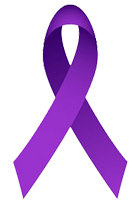It’s good to talk
How did you feel when you was diagnosed with IBD?
For me, strangely, it was a sense of pure relief. It was 10 years ago. I was in my mid-30s and had been suffering bowel problems for months; struggling to eat, losing a lot of weight, enduring painful episodes of bloating and extreme stomach cramps and, of course, passing loose and, at times, bloody stools.
Then there was the constant fatigue, affecting both my professional and social life. On the increasingly rare occasions I did meet up with friends or family the change in my appearance and once lively demeanour was immediately picked up on – nothing was ever said but I could sense it and read people’s faces.
We were all thinking the same thing without actually talking about it; after living an extremely unhealthy lifestyle for close to two decades I had bowel cancer, it had to be.
The problem was my condition was taking so long to diagnose there wasn’t much I could tell people even if they did ask – I could have gone over the range of symptoms with them ad nauseam but who wants to do that when actually in denial?
Most, if not all IBD sufferers have been through the full spectrum of medical tests – a seemingly never-ending trauma of internal probes failing to get closer to finding once and for all the cause of so much discomfort, embarrassment and pain. The medical strategy at the time for me was to rule out all the other possibilities before settling on a definite conclusion.
In the end I didn’t have cancer, the cause of my problems was Crohn’s Disease – bad enough but, nevertheless, a C-word with fewer fatal connotations attached to it, hence my immense relief.
Being diagnosed lifted such a huge weight from my shoulders. Finally I could be prescribed medication that would build up my defences against the biological attack taking place within me; I could plan a diet that would stabilise my rapid weight loss and would be under the observation of specialists in their field.
In short, Crohn’s could be managed and I could start rebuilding my life.
Knowing what you are dealing with and having a plan of treatment reduces anxiety, in itself a possible trigger for IBD, and provides a focus for attention. Having a clear diagnosis also helped me to mature and talk to people. I had never heard of Crohn’s before my diagnosis but I now had a hook on which to hang my symptoms. It was only after being diagnosed that I admitted to others, and they to me, our previous grave concerns.
Of course, being diagnosed is just one step along the journey of living with IBD. It doesn’t go away just because you know what it is and it can sometimes remind you of its presence when you least expect it to. There would be more dark days ahead for me but I now had an understanding support network among family and friends that helped me through the most desperate of times.
Sharing our stories can have a positive effect as part of an holistic approach to healthcare. Knowing you are not alone and that there are others in a similar situation, who have been through the same experiences and have come out the other side, can aid our own recoveries – both physical and mental.
It’s good to talk, and that is why the fledgling Frimley Park Hospital IBD patient group is so important. It is a resource that costs nothing to attend or to contribute to on this website, but the rewards from being part of a growing community and support network of IBD patients has the potential to be priceless.
